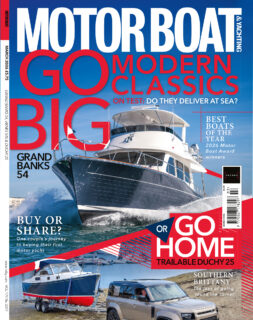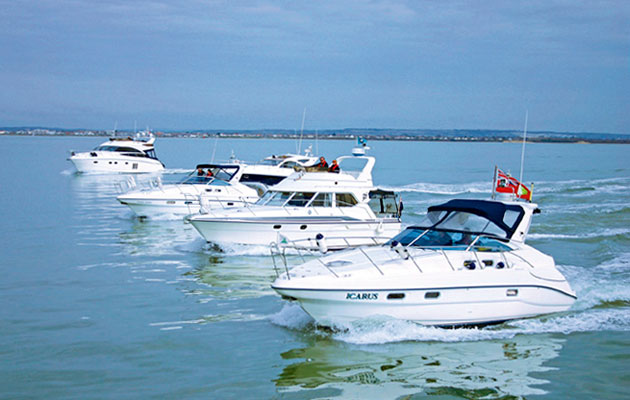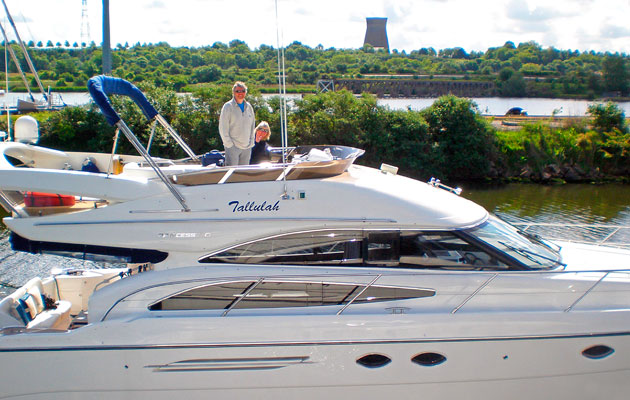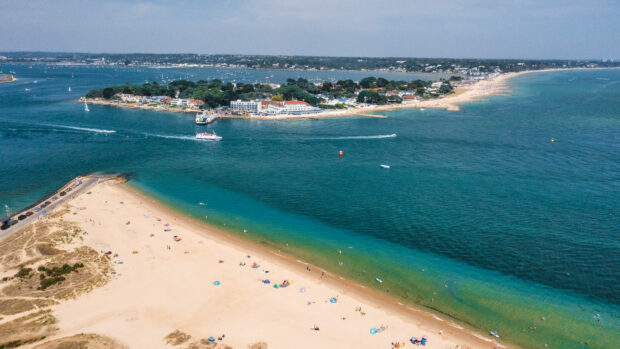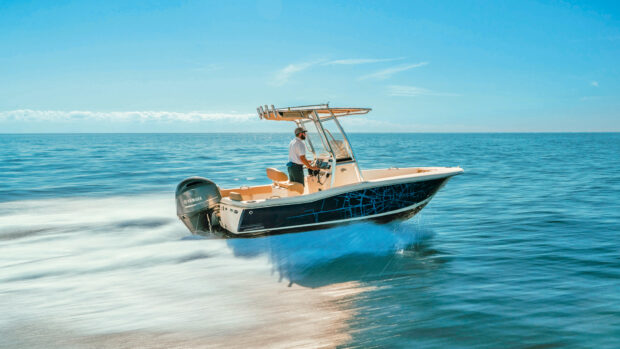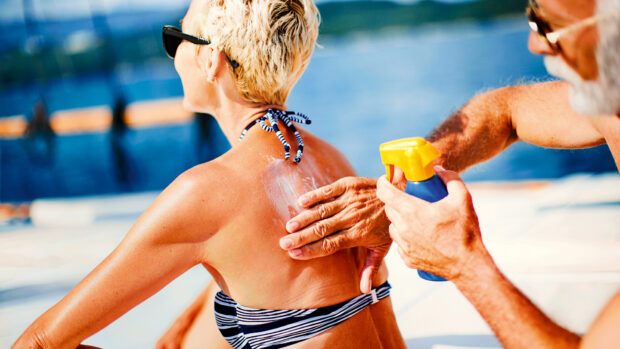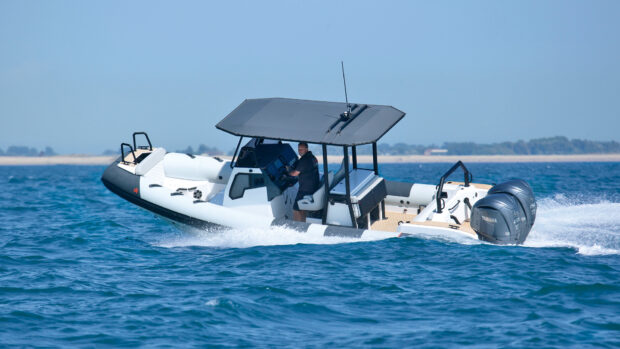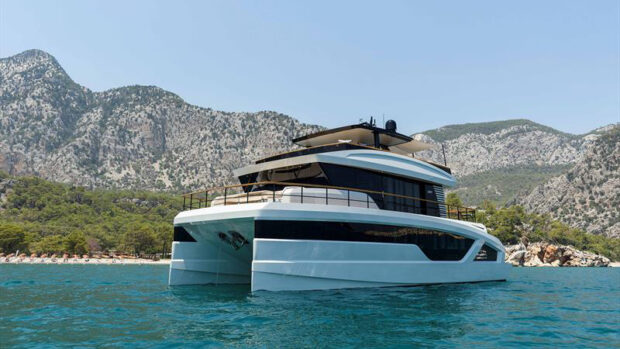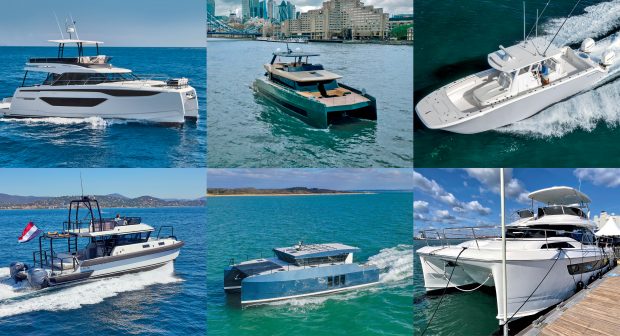If you find the costs of running a boat prohibitive, why not think outside the box and consider shared ownership?
In this article Peter Cumberlidge looks at three successful shared ownership arrangements.
We all know that cruising boats, especially sizeable new motor boats, are expensive to buy and run, and most are only used for quite short periods each season.
Totting up your average cost per enjoyable day on board is usually not recommended, yet in these straitened times the pips may be squeaking.
Although boat owners tend to be pretty resilient about the costs of their special pastime, it may be worth pondering various options for squeezing better value from your beloved floating asset and helping to balance the books.
Shared ownership is one obvious solution, but while this is fairly common with sailing yachts, it seems quite rare with motor boats, even though the potential savings are much greater.
Perhaps sailing boats seem somehow less precious than motor boats, more robust and amenable to sharing. Maybe those who go sailing are more focused on the sensations and satisfactions of the sport than on full possession of a yacht.
Those who do part-own boats happily benefit not only from reduced costs but also a potentially much greater cruising range than might otherwise be possible.
When one owner’s family can take a boat on an outward cruise and another crew make the return trip, your choice of destinations widens significantly.
Shared ownership
Some say you have to be very good friends to share a boat, while others maintain this is a sure way to lose friends.
You may think part owners need similar temperaments, but I know some successful partnerships between some amazingly different personalities that have lasted many years. Here are some examples:
Brian Dunton’s story
When Brian and his wife worked in the City, they lived in a commutable Hertfordshire village and were looking for a weekend home on the South Coast.
While considering different locations, they thought it might be fun to try some boating and asked another professional couple in their village whether they fancied sharing a boat. So together the two couples bought a Falcon 23, a fast dayboat with a single V8 outdrive.
Soon they decided the Falcon was too small and bought a new Fairline Targa 29. After 18 months they moved up to a Fairline Phantom 38 and started cruising further afield.
Everyone was hooked! These busy joint owners didn’t draw up formal contracts, but they did work out ten clear ground rules over a pub supper, which to me seem a highly workable basis for boat sharing:
- We don’t own half a boat; we own a whole boat, half the time.
- The boat ‘changed hands’ at 6.00 pm every Friday.
- Longer use for holidays was by negotiation and exchange of weeks.
- All costs except fuel were split 50/50.
- Fuel costs per couple were calculated on log miles.
- Any expense for further equipping or upgrading was agreed in advance and always split 50/50.
- No personal items were left on board (e.g. clothes, bedding and towels).
- The boat was washed, hoovered and left clean after each period of use.
- We had a “you bend it, you mend it and pay for it” rule for the inevitable accidents, and never needed to claim on our insurance.
- We all agreed to take Day Skipper night school courses and a VHF course. When buying a boat we negotiated several days of boat-handling instruction.
Splitting boat time 50/50 into alternate weeks through the season gives flexibility for long weekends, weather hold-ups or snatched midweek boating days at short notice.
The cleaning and personal items rules meant that each couple started their week with a pristine boat, just like taking over a charter, and nobody could be irritated by anyone’s ‘clutter’.
The scheme worked well and both couples became experienced cruising enthusiasts at modest cost.
The fascinating outcome was that, when they decided to move up from the Fairline 38, each couple bought a new Princess 40 so as to spend even more time boating!
Brian and his wife now own Tallulah, a Princess 50, which they cruise regularly to France and the Channel Islands.
Nigel White and John Sharp’s story
Based in Worcester, long-time friends Nigel White, John Sharp and their wives and families have shared a string of boats over 25 years, starting with a Phantom 21, working up to a Sealine S41, an S48 and then a Sealine T50 called Jealousea (pictured below).
For many years Nigel and John berthed in Dartmouth at Dart Marina and every summer the families enjoyed a fortnight’s cruise to France or the Channel Islands.
Nigel remembers with affection trips to Deauville, Honfleur and various Brittany harbours including Carteret, a firm favourite.
For two seasons Jealousea was based in St Peter Port, a quick and easy flight over from Bristol.
Nigel and John never drew up formal joint ownership contracts, but Nigel told me that a key secret of their success was that every single bill for their boats was set out on monthly spreadsheets and split exactly 50/50.
Unlike Brian Dunton’s system, their boating year was never divided between co-owners and Nigel, John and their wives invariably spent their time aboard together, both for weekends and family holidays. This formula produced 25 memorable years of happy, half-price boating!
Sharing a RIB
This example comes from my brother-in-law John Elliott, a Guernseyman who knows virtually every rock around the Channel Islands. He and his wife Fran own Minstrel, a 34ft-sailing yacht which they often cruise to France.
John also part-owns a Humber 5.6m RIB with two other Guernsey locals, one of whom is a marine engineer. They bought the RIB second-hand, she polished up like new and is moored in St Peter Port’s Albert Marina.
RIBs can be ideal shared-ownership boats, easy to run and mostly used for short spells at a time. John’s RIB regularly whizzes across to Herm Island, either to Shell Beach during the day, or for summer evening jaunts to the White House Restaurant or Mermaid Tavern.
In quiet weather the RIB is perfect for exploring the amazing rocky channels and pools around Herm or Guernsey’s west coast.
All running costs are shared three ways, the fuel tank is always left full and ‘bookings’ are arranged informally by phone or text, often at short notice. The RIB is ready for instant getaway and sometimes the partners go out together, with or without families.
Many people get a lot of pleasure per pound from this boat which, with only one owner, would be expensive to have lying idle at her berth.
